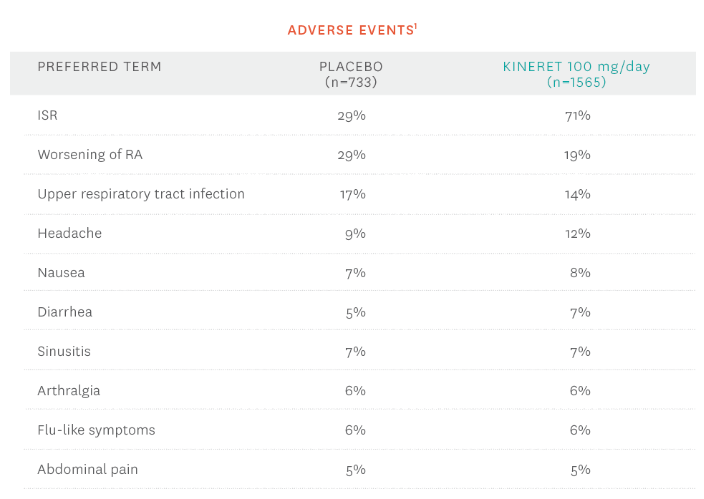RA Safety
KINERET has decades of well-documented safety data targeting IL-1–mediated autoinflammation in RA1
Safety was demonstrated in a high-risk RA population and shown to be well-tolerated in those with1:
- Varying degrees of disease activity
- Concurrent medications for RA
- History of complicating conditions, including:
- Asthma
- Diabetes
- Chronic obstructive pulmonary disease
- Pneumonia
KINERET offers a well-tolerated treatment experience1,3
- The most commonly reported adverse events were injection site reactions (ISRs)
- Most ISRs were mild (72.6% mild, 24.1% moderate, 3.2% severe)
- The most serious adverse reactions were serious infections and neutropenia, particularly when used in combination with TNF-blocking agents

Additional safety information1
- In KINERET-treated NOMID patients, the risk of a disease flare when discontinuing KINERET treatment should be weighed against the potential risk of continued treatment. Do not initiate KINERET in patients with active infections
- Use in combination with TNF-blocking agents is not recommended
- Hypersensitivity reactions, including anaphylactic reactions and angioedema, have been reported
- The impact of treatment with KINERET on active and/or chronic infections and the development of malignancies is not known
- Live vaccines should not be given concurrently with KINERET
- Neutrophil counts should be assessed prior to initiating KINERET treatment, and while receiving KINERET, monthly for 3 months, and thereafter quarterly for a period up to 1 year

